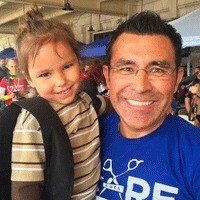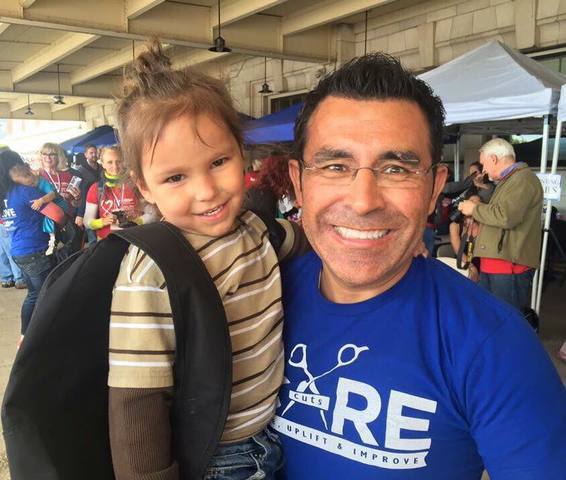According to The Family: A Proclamation to the World, “Marriage between man and woman is essential to His eternal plan.” And yet, hundreds of thousands of Latter-day Saints now find themselves in a predicament few of them imagined: never married or divorced after what they expected would be an eternal marriage.
Singlehood in a church so focused on eternal families poses an emotional challenge for those whose desires for an eternal marriage have been frustrated. This challenge is only aggravated by many raising children alone or losing full custody of their children, losing friends and family, losing their homes, re-entering the workforce, returning to school, facing immense financial strain, overcoming traumatic pasts, and braving the dating world time and time again.
And yet, even as single Church members struggle with these challenges and many more, they have not let the obstacles deter them from becoming a light to others. Indeed, it is possibly because of their difficult circumstances that they have experienced an increase in compassion and camaraderie, causing many to band together to lift one another up as well as lift others outside their community.
My Orange Is Your Orange
In early 2016, Latter-day Saint single Sarah Franklin volunteered to help the mass influx of refugees coming into Greece from Syria.
“I saw the images and video on the news, and it really just called to my heart,” she said. “I wanted to go over and help.”
Approximately 2,300 refugee children in Greece as young as 10 years old are “unaccompanied minors” without parents. One girl Franklin met while in Greece had been taken to the Syrian border by her parents, who only had enough money to pay the smugglers to get her out. Her parents were forced to remain in embattled Syria, and the teen had to make the dangerous journey to Greece without them.
► You'll also like: 10 Things Latter-day Saint Singles Wish You Knew
Franklin described meeting the refugees coming off boats with nothing but a grocery sack containing only a spare shirt or legal documents. “They are not allowed to take anything with them except that small sack,” she explains.
Despite having so little in the way of basic necessities and even food, Franklin found the refugees to be friendly and generous. In one camp, each person is given an orange for breakfast.
“They crave normality, and as you walk around camp, they want you to sit with them,” Franklin says. “And they give you that one orange on a plate. These refugees have oranges that you could say is their most valuable possession, and they give them to you,” she says. “It’s so compelling to see how giving and generous they are at a time in their lives when they have so little.”
As Franklin thrust in her sickle, it only increased her desire to help more. “Every time I go, it makes me want to go back,” she says. “But there aren’t a lot of organizations that take groups over. If you want to volunteer in a refugee camp, you often must commit a significant amount of time. Most won’t even consider you unless you can commit six weeks, but most people can’t do that, and I can’t do that either. I have a full-time job. But I felt like we could still serve in a meaningful way, even in a shorter time.”
So Franklin created her own group, which focuses on basic needs such as food and clothing, as well as improving general living conditions by clearing rat infestations and providing entertainment.
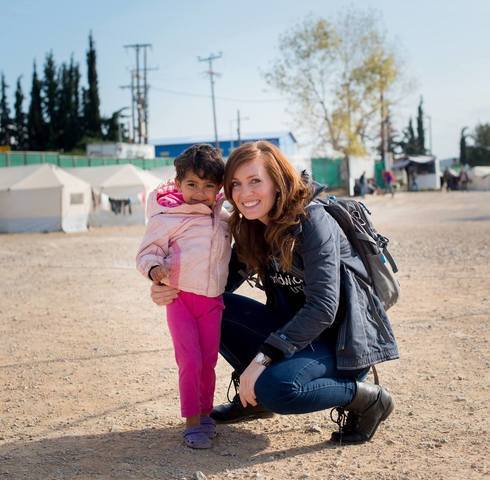
Sarah Franklin regularly leads groups of fellow Latter-day Saint singles overseas to serve refugees.
“It’s so boring in the camps, and they’ll be there for quite a long time going through the asylum application process—most will be at the camps for at least three years—so it’s easy to become sad and lose hope,” Franklin said.
To counter this issue, Franklin’s group provided one camp of 600 refugees with a television. The team also brings items such as skeins of yarn, which not only helps the refugees make their own hats, gloves, and scarves for the cold winters but also provides a skillset and something to do.
Build-a-Buddy is a hit among the children and teens. Similar to Build-a-Bear, children pick out their own stuffed animals and outfit and then crank the machine that stuffs it. Months later, the group continues to get pictures of the children still holding their treasured stuffed animals.
A professional magician also travels with the group, putting smiles on children and adults alike.
One middle-aged man told the group in broken English, “I haven’t smiled for a long time. Thank you for helping me smile today.”
Those with the Least to Give Often Give the Most
Latter-day Saint single Cory Douglas was struggling with depression when he decided he would stop focusing on himself and instead pay forward the kindness that had been shown to him over the years, such as the anonymous turkey dinner care package that was dropped off on his doorstep when he was spending the holidays alone, and the custom doghouse a ward member gave him when he and his now former young wife needed one for a new dog they had bought.
“They left an impression on my heart and inspired me to create a Random Acts of Kindness project,” Douglas said.
► You'll also like: 6 Powerful Love Lessons from a Former Latter-day Saint Mid-Single
In June 2014, Douglas created a Facebook group page called “Random Acts of Kindness Journal,” with a goal for the group to perform 365 acts of kindness by the end of the year and to post their acts of service on the Facebook group page.
“It got a lot of other people besides myself involved, and that in turn inspired me,” Douglas says. “I saw what other people were doing and thought, ‘Wow, I never thought of that!’ Plus, I started to notice that those who were the most giving tended to be the people who had the least to give.”
The membership quickly swelled into the thousands, with people participating from all over the world. “It continued to get other people involved and feeling connected, which helped lead to more opportunities to serve,” Douglas says.
One South African woman member decided to surprise and help the doorman at her office building by flying him home to see the wife and children he’d been away from for two years while he worked hard to earn and send them money. She connected with Douglas through the group, and with his help, they bought the man a passport and plane ticket to return home.

A South African member of the Random Acts of Kindness Journal group felt inspired to buy her doorman a passport and plane ticket to reunite with his wife and children.
“He intends to get a job close to his family and become a leader among his people,” Douglas says.
One woman who joined the group had planned to end her life and wanted to perform one final act of service before departing this world. But as she began to serve others, she found a renewed desire to live and keep serving.
Some people have been deterred from posting their Random Acts of Kindness, or RAOKs as the group refers to them, by the notion that when you serve others, you do so in secret.
“I used to feel that way too, but because of my experiences with the group, my perspective has changed,” Douglas says. “I not only am for posting what you have done, I think it’s an obligation because it helps others. So, I try to educate people. If no one had recorded Christ’s good deeds, we would never have been able to benefit from them either. You don’t post to be boastful of yourself but to lift others and inspire someone to help in a way they had never thought of. Some people feel they don’t have the money to do things, but when you read about how a girl who had been getting bullied started anonymously posting notes with words of affirmation on people’s lockers, it opens up new possibilities.”
► You'll also like: Sister Oaks Shares What It Was Like Being Single in the Church for 60 Years + Her Advice for Single Members and Their Parents
The following year, he challenged the group to do 1,000 RAOKs for people. The group met and exceeded the goal. This year, Douglas decided not to challenge the group to a set number of RAOKs but instead encourages continuous posts of their RAOKs and to also post news articles with RAOKs as well.
“I want this to be about uplifting and inspiring others because there are enough bad things going on in the world, and we don’t need any more negativity,” he says.
He also wants the group to be a legacy to his children.
“Many times, I’ll go through drive-throughs and pay for the people behind me. One time my college-aged son was with me and notice this without me saying anything, and asked why. I told him because it’s a nice thing to do. He looked at the car behind us and saw their bewilderment and appreciation as they waved at us, and I believe it helped him feel what I feel like doing something for someone unexpectedly. And now I notice both of my kids are doing similar things for other people.”
I Could Be You
Latter-day Saint single-led service groups have sprung up to help the disadvantaged within and without their own singles communities. Many singles have found themselves in difficult situations themselves, have known those who have or could easily see such situations befalling themselves.
Care Cuts and Soul Food were both created to help the homeless population. Care Cuts founder and single Marco Diaz created the non-profit originally as a one-time event to provide free haircuts and makeovers to the downtown Salt Lake City, Utah homeless population. In fact, he came up with the idea on an anniversary of his divorce as a way to look outward and focus on helping others. “We believe that coming together as a community, we can make a difference,” Diaz says.
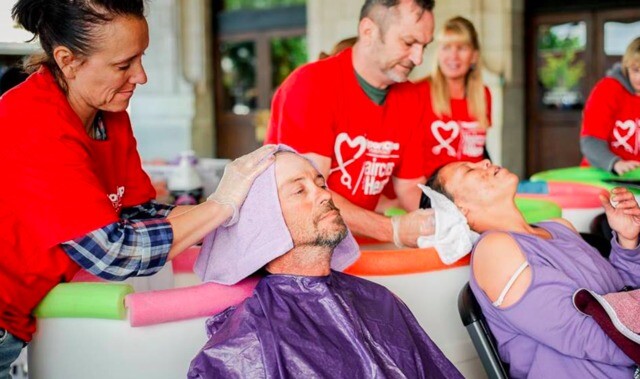
Several times a year, Latter-day Saint singles use their talents to provide free hair cuts, manicures, and wardrobes to Salt Lake City’s homeless population.
And they did. Hundreds of single Church members and other community members flocked to help, providing haircuts, manicures, and new wardrobes to several hundred homeless people. Many used their freshened appearances to apply for new jobs and apartments. The event was so successful, Diaz and his team knew they had to plan more to help even more people.
“Today we’re not going to change the world, but we’re going to do something. And something is going to uplift those who participate both from the recipient end as well as the receiving end,” he says.
They have since held many similar events as well as well-attended galas to raise money for their foundation.
Tara Starling, another single Church member, helps with the Care Cuts foundation and also runs Soul Food, which hands out hundreds of peanut butter and jelly sandwiches to the Salt Lake City homeless on a regular basis. Starling says that she loves these events because not only do the homeless walk away with a fresh start but it changes those who serve too. “We might not be able to save the world, but every single person can help someone feel good about themselves.”
Singles Chelsea Edelweiss and Nancy Reyes are both abuse survivors and became advocates over the years for domestic abuse and sex trafficking survivors.
► You'll also like: Listen: Why I Asked Mallory Everton of Studio C to Record a Podcast Interview About Being Single in the Church
“I started reaching out to women I knew were in bad situations and helping them, like if they needed to file reports or help with money. Word spread, so I started having people reach out to me,” Reyes says.
Edelweiss and Reyes are in the process of filing paperwork to start a non-profit, and are still trying to help women in the process. When fellow single Church member and friend Girish Rajaratnam, a DJ, caught wind of the current needs Edelweiss and Reyes were struggling to fulfill, he suggested they throw a Latter-day Saint singles party called “Liberave” to raise funds.
The team took in several thousand dollars through a door charge and the sale of artwork donated by single artists. Reyes says they are using the money to provide an apartment for a domestic violence survivor and her children, buy baby essentials for a destitute new mother, to help a woman recovering from a sexual assault, and for any future needs the team encounters. The team plans to hold Liberaves every few months and to sell artwork online to keep the money flowing into the foundation so they can continue to meet the many needs coming to them.

Nancy Reyes (left), Swag DJ Girish Rajaratnam (center) Chelsea Edelweiss (right) held a Latter-day Saint singles party and art sale called Liberave to raise funds for domestic violence and sex trafficking survivors.
Connecting Through Music and Dance
Rajaratnam has his own charitable organization as well called Liftunes. Rajaratnam is a well-known DJ in the Latter-day Saint singles scene, hosting many dances to provide a place where singles can have fun and connect with others in a safe, clean environment.
“I started DJing for the LDS singles scene because dancing helps us so much emotionally, and it brings people together for a high-quality dance experience that you can usually only find in a club or concert where there are also alcohol and drugs,” Rajaratnam says. “So, I like to give LDS singles the same kind of experience but keep it clean and safe.”
Rajaratnam also uses music to serve the community. Many of the same people who frequent his dances get together with him to do Liftunes karaoke shows and mini dances. “They get to leave their worries behind for a night and come out to sing and dance while serving others in a fun way,” he says.
Liftunes has served in assisted living homes and at Primary Children’s Hospital. “Old folks have liked it because we come in and sing and dance to their music. We kneel down to the people in wheelchairs and hold their hands and dance with them. It’s been such a positive experience for them as well as for us,” Rajaratnam says.
The DJ says they also come to homes for those who are terminally ill or have a serious medical condition through Liftunes House Party. “It’s a more intimate experience to lift those who are not able to leave their homes.”
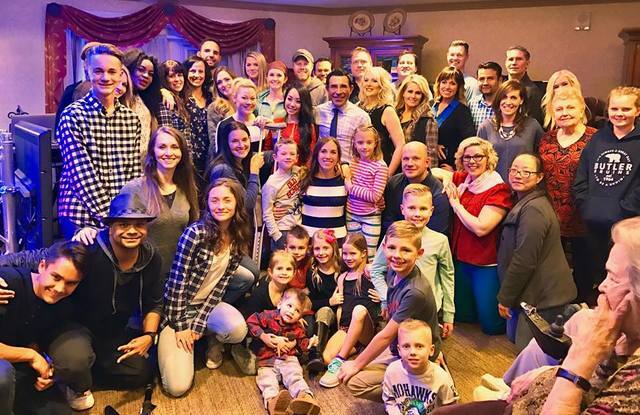
Singles join “Swag DJ” Girish Rajaratnam to lift the sick and elderly with dancing and karaoke.
Despite facing so many challenges in their lives, single Church members are still contributing in a powerful way to each other, their communities, and to the world at large. What they lack in eternal companions, at the moment, they make up in heart.
“Love is one of the chief characteristics of Deity and ought to be manifested by those who aspire to be the sons of God,” Joseph Smith said. “A man filled with the love of God, is not content with blessing his family alone, but ranges through the whole world, anxious to bless the whole human race” (Teachings of Presidents of the Church: Joseph Smith).
You could say that these singles, and many others, give freely and lovingly of their precious oranges.
lead image: Marco Diaz, founder of Care Cuts
All images courtesy of the author



